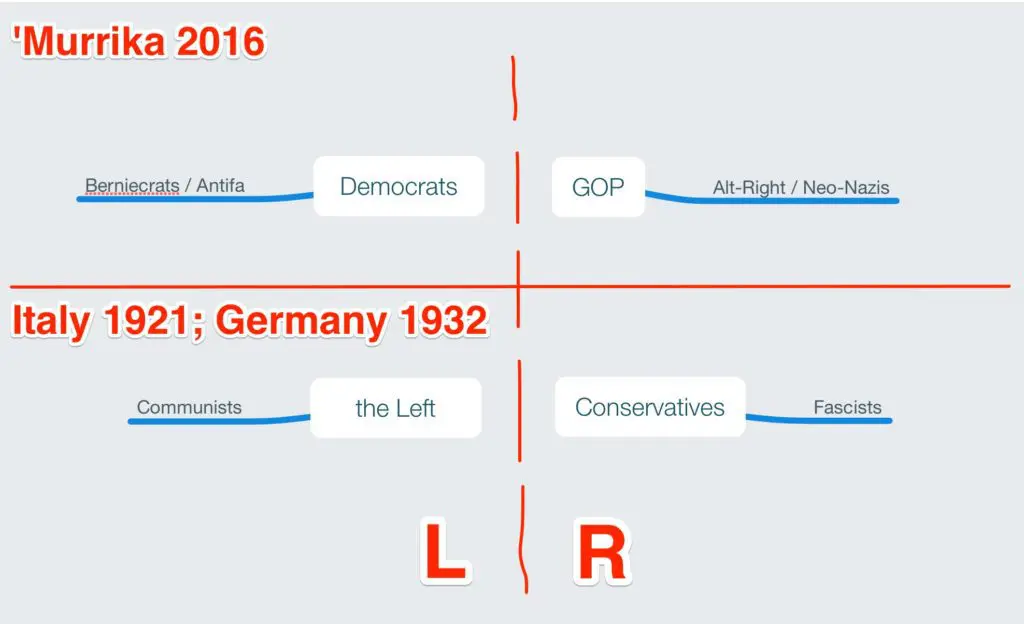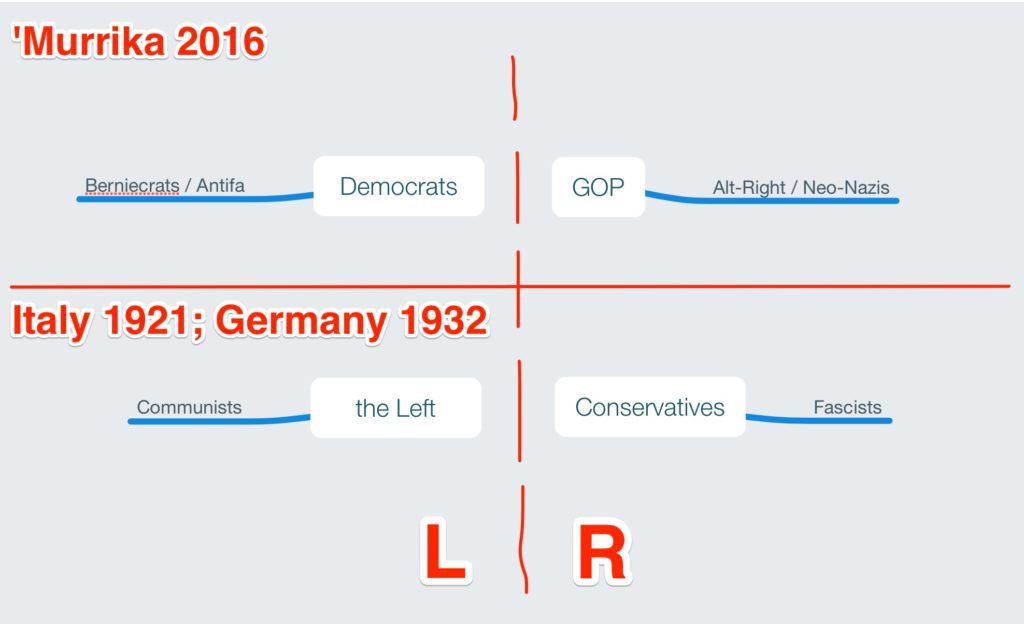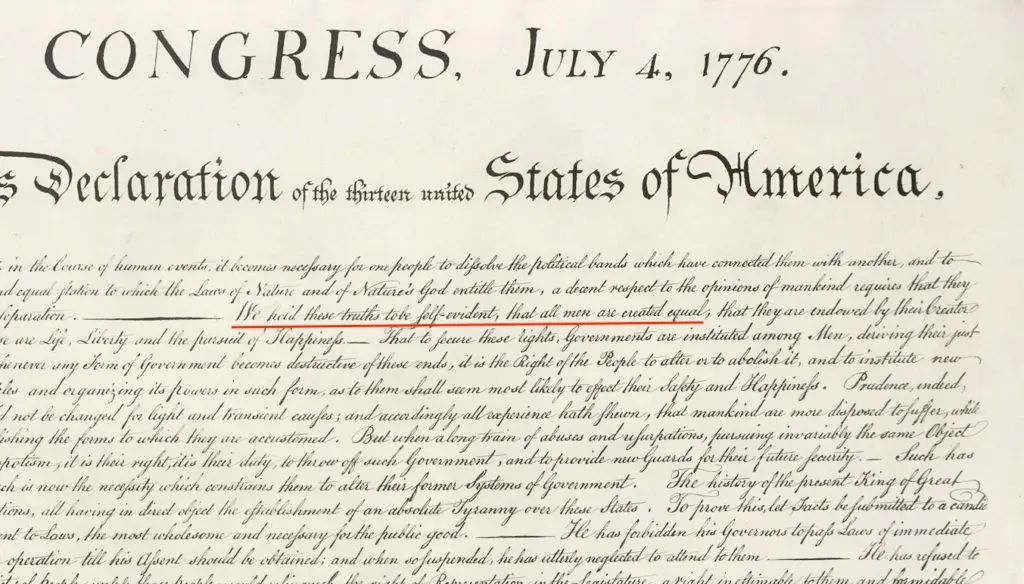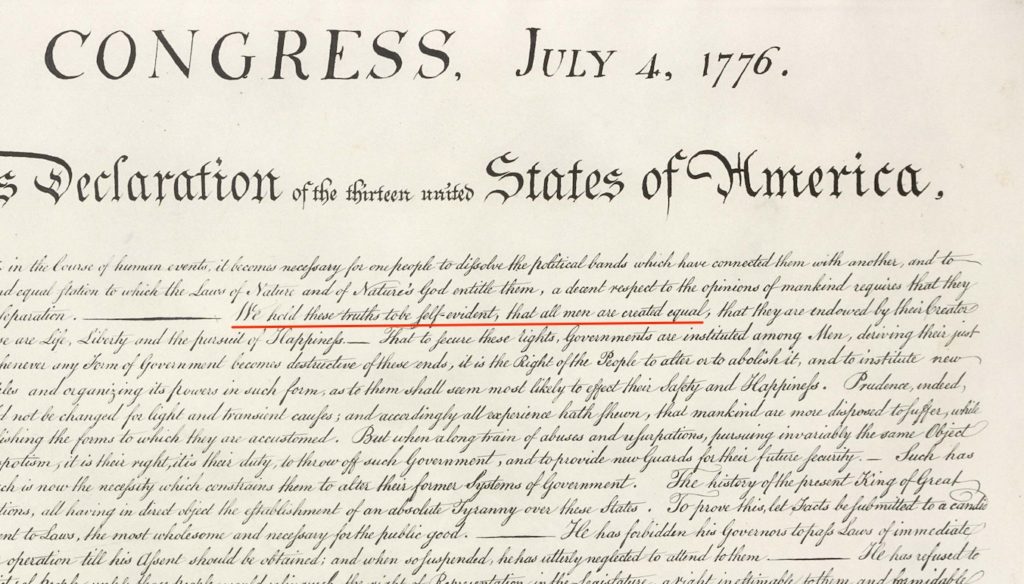The following list must be prefaced with some caveats about painting with broad strokes, and acknowledging everything is a distribution and Not All Republicans espouse all of these things to the same degree or even at all. Nevertheless, both the extremism and the polarization in our political system is the highest in recent memory — certainly in the totality of my Generation X memory, and by all accounts the highest since the 1930s. Extremism is high on both the Left and the Right, but research shows it’s been growing much more extreme on the Right.
And in many ways it feels like we are living through something akin to the 1930s, again. The rise in authoritarian regimes and totalist thought and linguistic patterns is troubling and dangerous. The United States never had an armed insurrection take over the Capitol building prior to January 6, 2021. America has had many periods of brutality in its past and present, but historically speaking nothing like the recent decades of escalating mass shooter events.
What can explain the religious devotion to a failed businessman and failed President on the Right? Loathe him through we might on the Left, Trump is revered on the Right for espousing the “virtues” of a traditional hierarchical society, and for giving coded approval to America’s most shadowy extremist groups that he would be finding excuses to look the other way if they chose to strike. They both held up their ends of the bargain, with would-be assassins in tactical gear assaulting the nation’s lawmakers as they certified the 2020 election results as mandated by the Constitution, and paid puppets in the Senate letting them all off the hook… technically speaking, that is.
Trump looked the other way, but only for another 14 days — until Joe Biden was sworn in as the 46th President of the United States. With a new sheriff Merrick Garland in town, all bets are off regarding leniency for the nation’s most vile and seditious lot who stormed the Capitol and disrupted the peaceful transfer of power for the first time in US history — a sad day for the country and its venerable history of managing to keep the republic.
This will be a work in progress, as usual. And a tool for discussion — we’re going to need it for the coming years.
| Liberal Values | Authoritarian Values |
|---|---|
| Equality | Hierarchy |
| Justice | Force |
| Liberty | Control |
| Popular sovereignty | Unpopular rule |
| Common good | Privatization |
| Logic | Magical Thinking |
| Reason | Power |
| Truth | Propaganda |
| History | Myth |
| Reality | Fantasy |
| Responsibility | Escapism |
| Rationality | Irrationality |
| Integrity | Hypocrisy |
| Character | Character disorder |
| Wisdom | Ignorance |
| Generosity | Greed |
| Honesty | Deception |
| Earnestness | Cynicism |
| Skepticism | Loyalty |
| Curiosity | Boredom |
| Compassion | Contempt |
| Empathy | Sadism |
| Driven by care | Driven by fear |
| Morality | Nihilism |
| Transparency | Secrecy |
| Consideration | Callousness |
| Patience | Impatience |
| Maturity | Immaturity |
| Emotional intelligence | Emotional manipulation |
| Wholeheartedness | Cognitive dissonance |
| Vulnerability | Defensiveness |
| Authenticity | Mimicry |
| Deliberation | Act without thinking |
| De-escalation | Aggression |
| Conscious | Unconscious |
| Self-aware | Self-deception |
| Education | Brainwashing |
| Diversity | Conformity |
| Creativity | Destruction |
| Artistic | Fundamentalist |
| Solutions | Grievance |
| Community | Rugged individualism |
| Trust | Distrust |
| Gratitude | Envy |
| Respect | Disrespect |
| Sustainability | Extraction |
| Self-regard | Cathexis |
| Spirituality | Religiosity |
| Self-actualization | Follow the leader |
| Problem solvers | "Tear it down"-ers |



